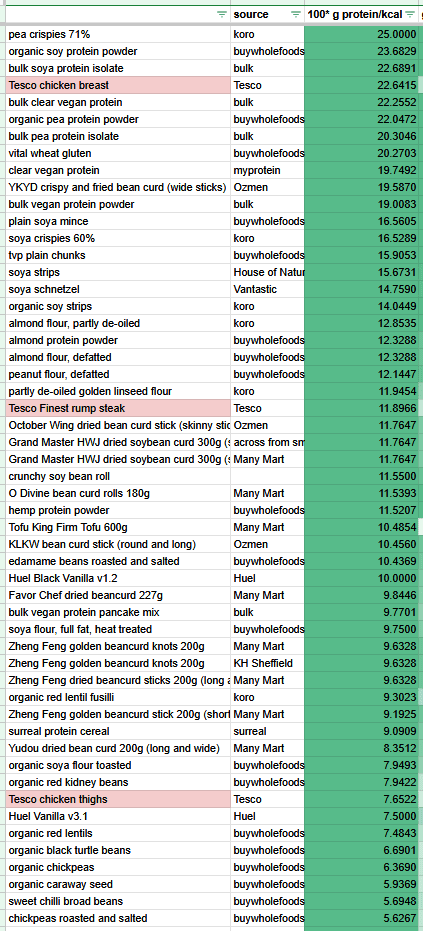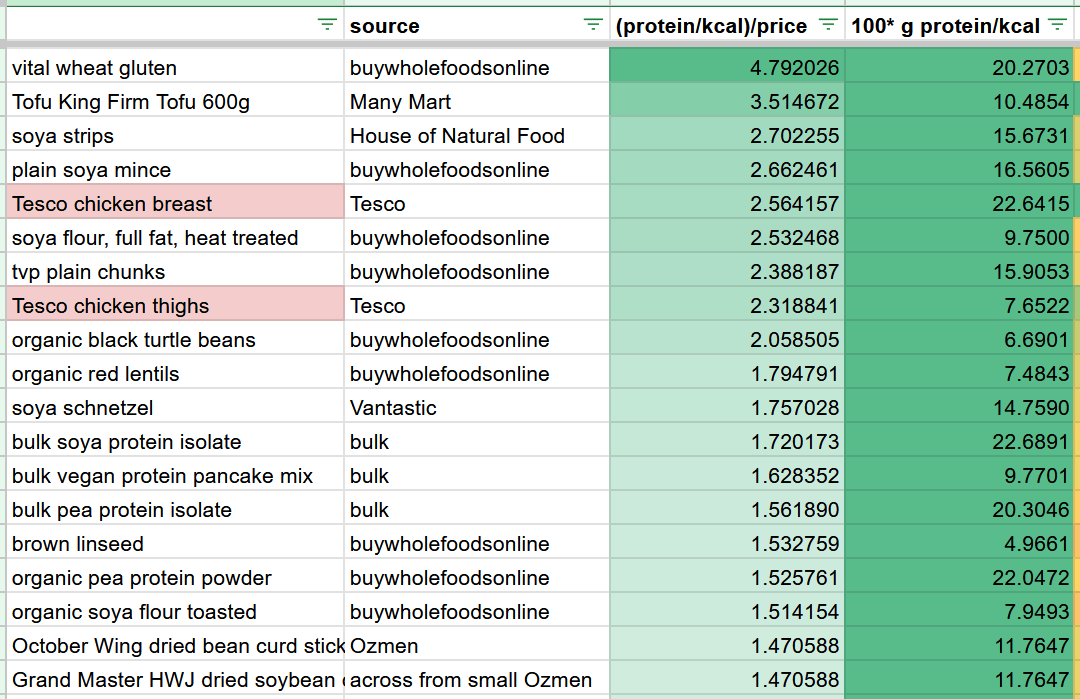
matthes
Bio
Participation1
I live in Sheffield where I work as an engineer on cool stuff to improve the world. Most of my time has been on a pandemic preparedness project, but looking to launch some super exciting animal welfare things.
I recently restarted High Impact Engineers. Check out and engage with the new forum (pretty please)!
I run EA Sheffield. Come along to our next social if you're in the area!
I organised EA North 2025 and might make it an annual thing. It was very cost-effective.
I have a PhD in computer science and an undergrad degree in physics.
How others can help me
Engage with the High Impact Engineers discussion forum (name pending - please vote).
Talk to me about tech bottlenecks for studying and improving the welfare of animals (farmed and wild) at scale.
How I can help others
I am pretty good at research (reading papers, planning/doing/evaluating experiments, writing up results [yuk]).
I am alright at coding (firmware and software for various applications).
I also have what is left from an undergraduate degree worth of physics knowledge.
Posts 35
Comments16
Thank you! My base recipe is just:
- mix vital wheat gluten with some nutritional yeast (if I have any) and a bit of soy sauce
- add water until it comes together in a dough that I can fold in on itself until there are no more crumbs/flour
- rest for 15 min
- rip out (table tennis ball sized) pieces, pull them long, knot them
- boil the knots in vegetable broth (maybe 10-15 min)
- then cut into slices
I make these in bulk and find that the slices freeze well. I find that they work best in curries (Thai and Indian style) and chillies (especially if you cook them in a pressure cooker with all the beans and spices).
I also just snack on them on their own, but that's maybe an acquired taste, like raw tofu or tempeh. (I also sometimes make my own tempeh. It's quite fun! Making tofu turned out to have a really low yield, so I stopped doing that.)
These will turn out quite chewy. Some people don't love that. To make them less dense, I have in the past added baking powder which makes them puff up when boiling - you'll need a big pot for that!
Currently working on seitan sausage recipes, but not happy with any of those yet. If anyone has recommendations, please let me know!
[Edit: This post had negative karma when I made this comment]
I'm sorry that your first post on the forum is getting a bit of a negative reaction. It's great to have you here and I hope this isn't super off-putting!
If you are interested in some actual numbers on demographics, check out the EA Survey posts, like this one from 2024.
My thoughts on your questions:
I am curious on the communities thoughts on this lack of diversity.
I personally don't mind much. Almost any community will have demographic weirdness of some kind, and I don't inherently value diversity. I know others find it concerning, but I am not aware on survey data on this. You can definitely find quite a bit of writing on this topic if you search the forum.
if there are any initiatives being taken to improve diversity within the EA community
I am unsure what you mean by "improve". But most EAG events I have been to have meet-ups for various demographic groups. I have never attended these (despite "qualifying" for a few). But I know others really like organising and attending these. The most recent EAG London had meet-ups for the following: neurodiversity, people of colour, Christians, women and NB people, people from low and middle income countries, Jews, socioeconomic diversity, LGBTQ+.
(You may be getting downvoted for the line "This demographic has historically been disconnected from social impact". Perhaps consider elaborating why you think that.)
For (potential) vegans that are depressed at the sight of the protein/kcal table. Here's a screenshot of a similar table I put together last year (for myself - UK based). I like sharing this with gym bros that scoff at veganism for lean protein reasons.
Beware that it has a small number of duplicates as I was also tracking prices from different suppliers to compare.
Most of the things on this list have one or two ingredients if that's something you care about.

Thanks for the feedback! Maybe I overestimate how common GitHub use is.
Having said that, GitHub Discussions as a forum space requires no knowledge of git or coding. I think the interface is even simpler than the EA forum.
Contributing to the website is definitely going to be more accessible to people with some software experience. Although I am totally willing to onboard people with no prior experience if they're excited to learn!
I'll look into making the contribution guidelines on the website sound more welcoming.
Thanks! Some reasons I chose GitHub Discussions:
- threads stay up and visible forever for free (Slack is almost $10 per user and month if you want to keep post history beyond 90 days)
- there is an upvote feature making browsing more interesting because you can sort posts (once there is lots of content)
- people can close discussions when their post is resolved which declutters the default main page (for simple question + answer posts)
- no user management necessary
- if I made a Slack joining link public I open the doors to bots - GitHub is natively pretty great at spam/bot prevention (at least so far)
- if I made a Slack joining link private I would have to spend some of my time going through applications
- anyone can easily check it out without having to set anything up
- everything related to High Impact Engineers is on GitHub, making it easy to onboard new contributors/maintainers/admins which is great for a volunteer-run org
- many engineers have a GitHub account already and are familiar with the interface
Slack seems expensive and/or more appropriate for real-time conversation.
I do appreciate that this is a bit unusual, but it seems like the perfect platform to me!


Yes, this table does not include data on this. I don’t have columns for values related to that. It’s a lot of work to track these numbers down and for many foods they are just not available.
When people online talk about the “bioavailability” of protein sources, they seem to mean one (or both) of two things:
One is the digestibility. So how much of the amino acids end up absorbed your body. That number is ~90%+ for most soy products (that I have found numbers for) as well as vital wheat gluten.
The other thing that people talk about is the amino acid profile. As one would expect, an animal muscle has the amino acids that one needs to build animal muscle, in about the right relative amounts.
Soy also has all essential amino acids, the profile is just a bit different. But none is particularly low or missing.
Vital wheat gluten is low in lysine. So I wouldn’t recommend relying only on seitan for protein. But if there is a bit of soy or some beans in your diet, I wouldn’t worry about it. (It’s also easy and cheap to supplement but that’s probably usually not necessary.)
Protein quality scores like PDCAAS and DIAAS try to account for both. That's why, on its own, vital wheat gluten ends up with a poor score. But soy products tend to still score highly.
Basically, I am not worried about it and have personally been building muscle without problem on a vegan diet with lots of soy and some seitan. But you are right that accounting for this would probably change the table ordering a little.